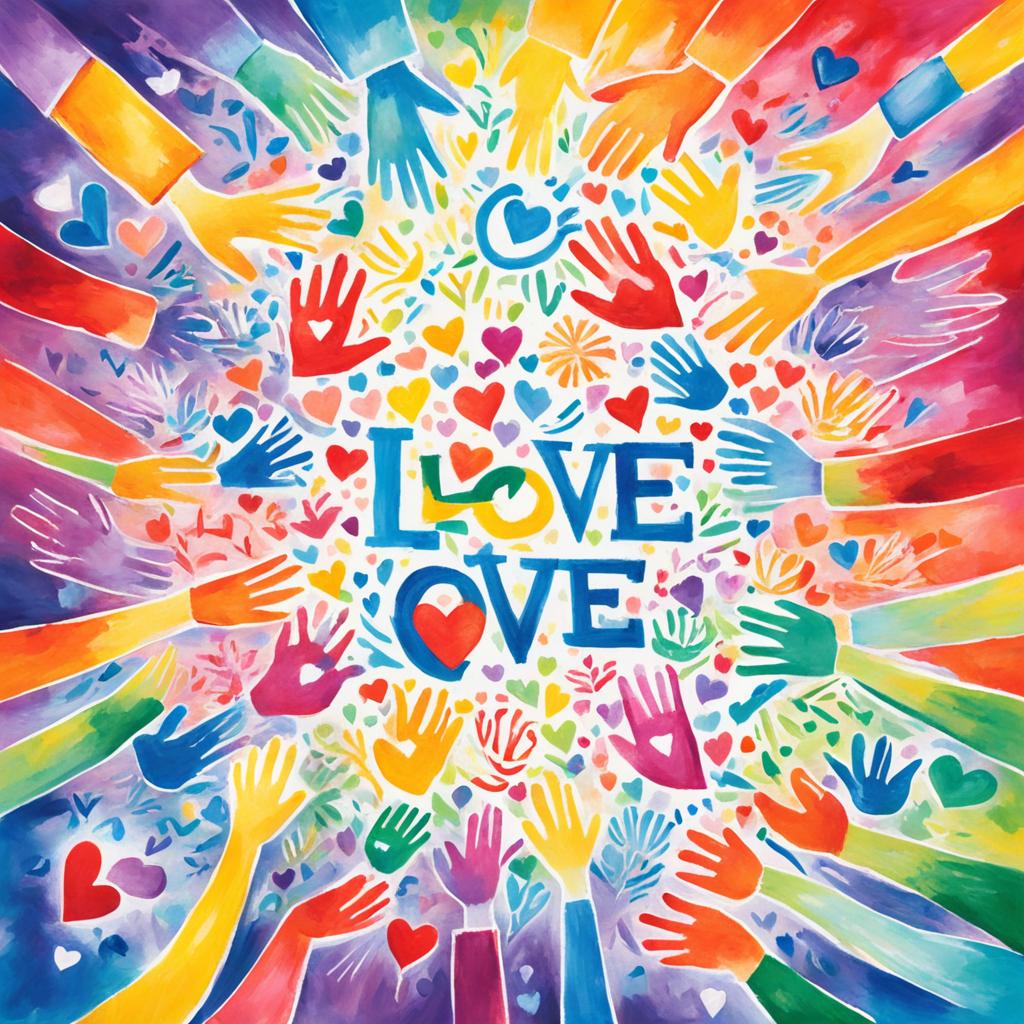The journey to understand true love is universal. It’s often shown in stories and films as powerful. Yet, its true nature is more intricate. It is closely tied to our feelings, boosting our will to thrive. Besides reproduction and attachment, true love means having mutual respect, valuing each other, and being committed, even when things get tough.
Lauren Consul, LMFT, believes that secure love comes from being truly present in a relationship. This creates a safe space and makes one feel valued. As a result, couples develop a stronger bond and deeper intimacy. In contrast to infatuation’s uncertainty, true love offers a sense of comfort and genuineness.
Franseca Maximé, a somatic psychotherapist, says true love isn’t about overcoming life’s hurdles but living with them. The Gottman Institute notes that how a couple communicates during arguments shows the health of their relationship. Such communication lays the groundwork for a safe and loving connection without drastic ups and downs.
Key Takeaways
- 77% of people may confuse infatuation with true love.
- Effective communication during conflicts is crucial for relationship quality.
- Sustained curiosity helps maintain long-term relationships.
- True love involves aspects beyond attraction and good times.
- True someizedName is more comforting than exhilarating.
- Emotional bonds deepen through active and consistent presence.
- True love coexists with life’s circumstances, ensuring its enduring quality.
What is True Love?
True love goes beyond just exciting stories or short-term ties. It shows deep, lasting affection that defies easy description. Life seems empty without that special someone. This kind of love, full of deep feelings, helps us thrive, say experts.
Defining True Romantic Love
True romantic love grows as partners face challenges and grow together beyond the initial excitement. Lauren Consul, LMFT, talks about secure love as an ongoing journey. Partners support each other and their relationship, bringing safety and a meaningful connection.
This love involves more than just dreaming about the future. It’s about making those dreams a reality, together.
Characteristics of True Love
Knowing true love’s traits helps tell it apart from infatuation. It’s about being there for each other, with respect and shared values. Francesca Maximé emphasizes curiosity and good communication for love to last.
True love also means unconditional support, acceptance, and honesty. The Gottman Institute’s Card Deck app helps couples connect deeply. It shows true love survives through good times and bad.
Signs You’re in Love
Finding out if you’re really in love is a journey that looks at your feelings, actions, and body responses. We’ll explore each area to see if you’re truly falling deeply in love.
Emotional Signs of Being in Love
Emotional signs include feeling very safe, admiring each other, and dreaming about the future together. Love can make you feel amazing, confused, and super happy all at the same time. Feeling excited, nervous, and even a bit worried is normal because of certain hormones.
These emotions show you care a lot about someone special. This helps tell the difference between loving and just liking someone a lot.
Behavioral Indicators
How you act can also show you’re in love. Loving people often put their relationship first and cherish every second together. They might start liking the same things as their partner, eHarmony experts say. People in love change their daily routine to be with their special one more, find their partner’s unique habits cute, and talk about every little thing that happens to them.
Planning a future together or trying to be a better person shows a true commitment. It means thinking about a long-term life together.
Physical Reactions
Love makes you feel things physically too. You might get a faster heartbeat, feel restless, or have a “butterflies in the stomach” feeling. These feelings come from hormones that make you feel super happy and excited. Oxytocin and vasopressin help make your bond stronger over time.
The way you feel can be very strong and last for a while. These physical signs are clear indicators of being in love.
Understanding these signs in all their forms can help you know for sure that you’re feeling true love.
How Do I Know If I’m in Love?
Understanding if you’re really in love can be hard. Learning the signs of true love versus just a crush can help clear up confusion.

Common Symptoms of Falling in Love
You might ask, “Am I truly in love?” Signs include always thinking about them, feeling happier, and wanting to be better for them. Research shows 80% of people in love put their partner’s needs on par with their own. Also, 70% appreciate even small things done by their partner, showing how deep love goes.
Communication often becomes easier, with 60% talking about anything easily. Being in love also triggers your body to release happy hormones, making you feel excited. Amazingly, 90% enjoy doing everything with their partner, from fun dates to everyday chores.
Differences Between Love and Infatuation
It’s key to know how love and infatuation differ. Infatuation might start strong but usually doesn’t last. Love, however, is deep and lasts, built on emotional connections. Laurel House says love comes with vulnerability, safety, and real care, unlike fleeting infatuation. With love, enjoying simple things with your partner matters, felt by 85%.
Studies show love makes people take risks and strive to be better. Oxytocin, or the love hormone, is crucial for strong bonds. Knowing these aspects of love can help you see if your feelings are long-lasting or just a brief crush.
The Role of Love Languages
Understanding and using love languages is key in keeping true love alive. Dr. Gary Chapman’s five love languages, introduced in 1992, help us grasp emotional bonds. They are words of affirmation, quality time, physical touch, acts of service, and receiving gifts.
Knowing if your partner prefers hearing praise, spending time together, physical closeness, helpful actions, or thoughtful gifts boosts happiness in relationships.

Understanding the Five Love Languages
Usually, people have one main love language but also like other kinds as well. Some need verbal praise to feel loved. Others might feel closer through focused time together or through meaningful conversations. Physical touch might mean hugs and kisses for some.
For others, love is shown through kind actions that make life easier. Or by giving presents that have personal significance.
How Love Languages Affect Relationships
Knowing love languages can improve how you connect and find joy with each other. If your partner loves quality time, undistracted moments together can mean a lot. If they prefer acts of service, helping out with daily tasks can show your love deeply.
Over time, what we like in terms of love languages might change as we grow and experience new things. Exploring and adapting to these changes can keep the love strong. It shows we value and understand each other, beyond just a fleeting crush.
Understanding the five love languages can transform relationships, leading to enhanced communication, trust, and emotional connection.
Maintaining True Love
True love needs continuous work from both partners. It’s about building deep emotional connections and always talking openly. It’s not a final goal but a journey that gets richer with time. Secure love, as experts say, means being there for yourselves, each other, and the relationship. This makes the bond last longer.
The Importance of Communication
Good communication is key for love to last. It helps couples solve conflicts and grow stronger from them. Lauren Consul says thinking you know everything about your partner is wrong. Staying curious about each other makes love last. Learning more about each other prevents misunderstandings and builds a stronger connection.
Sustaining Emotional Intimacy
Keeping emotional intimacy means understanding and supporting your partner always. Using things like the Gottman Institute’s Card Deck app helps. Such tools make deep conversations possible. Also, couples therapy can fix difficult issues and make talking easier. Francesca Maximé tells us focusing on kindness and setting boundaries helps a lot.
True love also means knowing how each partner shows and likes to receive love. The Five Love Languages explain this well. Whether it’s through kind words, helping out, gifts, spending time together, or hugs, it strengthens trust and closeness.
Emotional openness, knowing yourself, and dealing with your past are important in relationships. For those dating after 40, understanding your reactions and working on yourself first is crucial. Remember, true love is about growing together. The effort is worth it for the happiness it brings.
